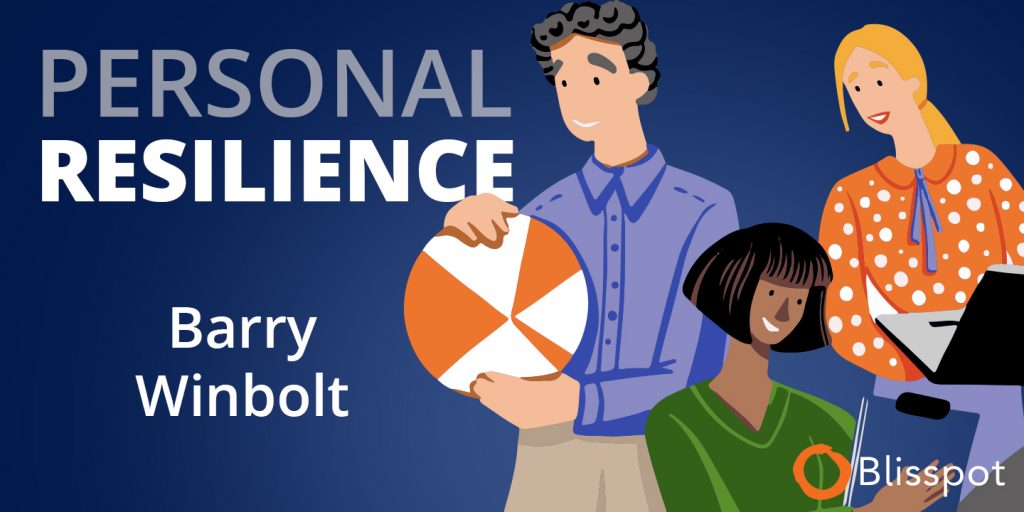Adjustment to any change is a challenge at the best of times. In the current situation where sudden change has been forced upon us by circumstances, the word ‘challenge’ seems totally inadequate.
In any other situation, there would be somewhere to turn for advice, guidance, and other resources. Here we have something entirely new so there’s no experience to draw on. ‘Experts’ are guessing about where this will all end, and phony pundits and fake news add to the confusion.
So we must turn to the only thing we can rely on, and that’s our own resourcefulness. History shows that humans are hugely resilient. If it was not so, we wouldn’t be here today. Our species has evolved to survive despite all the bad stuff that Nature and our environment can throw at us. Perhaps that is what is meant by “What doesn’t kill us makes us stronger”.
In the midst of all this, such platitudes are little help, but what will help is our belief in ourselves. The situation may be a first, but resilience is in our makeup and we’ll come through it. Hopefully, the journey will be short. But however long it lasts, it’s our own, inner resourcefulness which will be the deciding factor in how well we manage.
Living with Lockdown
Depending on where you live in the World you are either under lockdown, or it could imminent in your area. This measure has been inflicted on us to help protect our physical health and that of the community. But it might seem that our mental health and wellbeing could now be put at risk by enforced confinement.
But it doesn’t have to be. There are several steps you can take to keep yourself occupied, emotionally stable, and even on a positive track to self-improvement.
We still have control
Of course, there are limitations to being stuck at home, and it feels as though something has been taken away. But there’s a lot you can do to help keep a sense of control and so bolster your morale.
Your mental wellbeing will be protected if you focus on what you can do, rather than what you can’t. Rather than seeing the changes as restrictive, look for the possibilities they present, use the time wisely, and you can become psychologically stronger and more resourceful.
Even though social distancing and being told to stay at home feels restrictive, there is also the opportunity to invest in your wellbeing. By taking care of yourself and those around you, for example, learning something new, catching up on some of the things you ‘never have time to do’, and self-improvement.
Your choice
You can pass time by worrying and sharing stories on social media about going stir-crazy, or you can realize that you do have control of the most important part of all this – you.
Here are some suggestions as to how to go about it:
1) Perspective
One of the main ingredients of emotional resilience is your attitude in a crisis. The ability to see things as they are without dramatising and exaggerating helps preserve emotional energy and shields us from worry.
2) Avoid scare-mongers
Whatever your outlook, protect yourself by staying away from scaremongering and catastrophising. This means avoid negativity in all its forms. You need information, but keep it to a minimum. This will mean avoiding the news, some people, and above all, be very selective with social media.
You are careful about what you eat and drink, apply the same caution to what you consume through your eyes and ears. What you take in can be just as toxic and damaging as an unhealthy diet.
3) Structure and routine
Structured and routine can help you feel more in control. They help you manage your mental space because they reduce uncertainty and feel more confident. Structuring your time into both daily and weekly routines can establish healthy patterns in your life. Focussing your time like this leaves you less time to worry about things you can’t change.
If you are working from home you already have a partial structure. Stick to it with regular work/break times. Be disciplined about this, and respect your timetable.
The same applies even if you are not working. In either case, get up at a regular time each day and wash and dress as if you had to go out and face the world.
4) Sleep
Sleep is vital for wellbeing and routine is a must so stick to a regular bedtime and get up at the same time each morning. This applies to weekends too because ‘sleeping in’ or binging on sleep will disturb your sleep patterns.
While your weekend timetable might be a little different from the weekdays, you shouldn’t need more sleep. If you feel you do, then make bedtime a little earlier to catch up so that you wake feeling refreshed.
5) Exercise
Now that you can’t go to the gym, but there’s plenty you can do at home to keep yourself in shape and even improve your fitness.
Exercise doesn’t have to be vigorous. Regular Yoga, Tai-chi, aerobics, and dancing are all beneficial. If you are allowed out then walk or run if that appeals to you.
6) Relationships
Relationships need to be kept in good shape too. 24/7 living together can be stressful if you are not prepared for it, and stress can threaten even the healthiest bonds.
Harmonious and tolerant relationships don’t happen by accident, you need to work at them. Talk to your partner, and do nice things for each other. It’s easy to become preoccupied with daily concerns and to overlook those you love.
Establish shared routines for chores (you don’t both have to do the same things, but there should be a balance which both of you think is fair). Give each other space – say, different rooms/ activities for a certain time each day
7) Stay connected
Arrange virtual dates, meetups, book groups, or study sessions. Planning these at a regular time each week will help others, as well as you. Ask around, then organize it. Take charge and make it happen. If you are not confident enough to do it by yourself then partner up and plan together.
We are a social species and lack of contact will be the hardest for some people. Plan to avoid isolation by scheduling regular contact with others. Reach out to others, and offer support to anyone you may feel is becoming isolated.
8) Learn something new
Develop an interest or hobby. One of the great things about our connected world is that the possibilities are limitless. Many universities offer free courses and there’s currently a boom in online learning.
If this doesn’t appeal to you then consider improving your practical skills like cooking, art, or writing. If you have a particular talent or skill you might even launch a course of your own.
As with other activities, schedule regular learning sessions just if you were attending classes. This helps shape your day and also aids the learning process. Short, regular sessions are more beneficial than longer or more intense ones.
8) Eating
Take time and care in planning and preparing your meals. Regular mealtimes – preferably, sitting up at a table – are better for relationships, your digestion, and your mental health.
10) Look ahead
This enforced lockdown may be horribly inconvenient but it doesn’t have to be all about the downside. We will all be changed by this global crisis but the restrictions offer time for reflection, insight, and even planning for some of the things you told yourself you would do ‘one day’ or ‘when I have time’.
This may be a good time to reflect on how your life could be improved for the better, once this is all over. Things may never be ‘normal’ in the same way, and now might be the time to learn from experience and to begin planning how you would like your life to be once freedom is returned to us.
To learn more about how to survive & thrive see: Personal Resilience
Resource
Photo by Alexandre Chambon on Unsplash










Important skills to be sharing at this critical time Barry, thankyou. This can be a time of learning and growth.